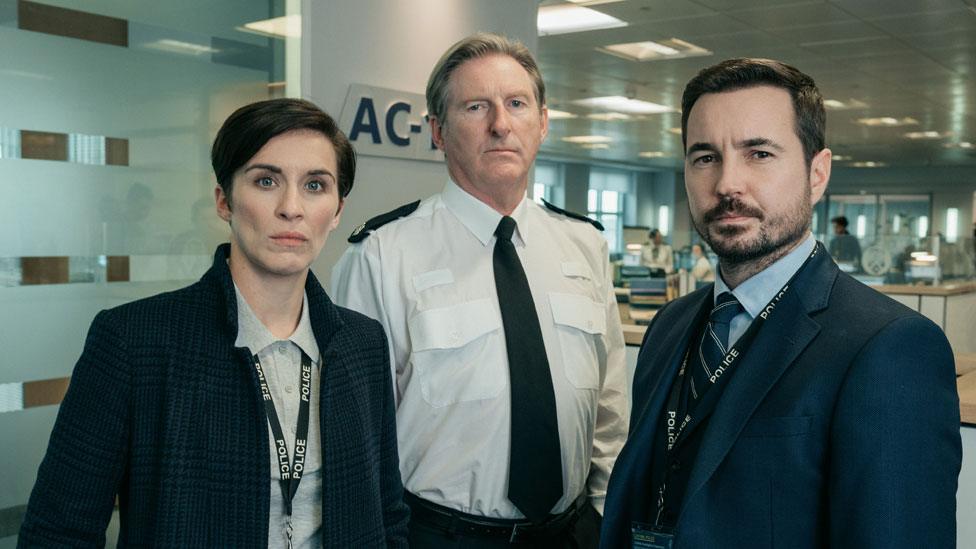How technology is changing the craft of screenwriting
- Published
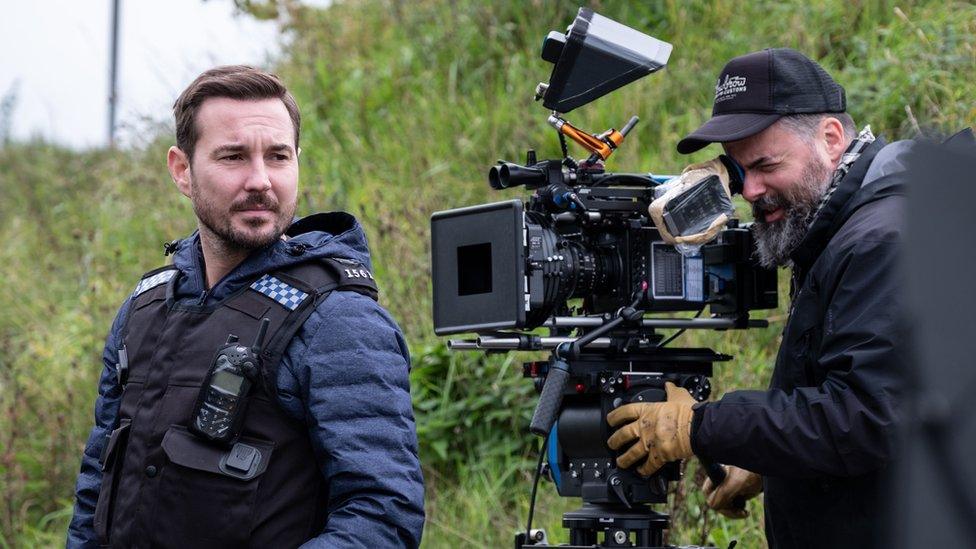
A consolidated audience of more than 12 million watched the recent Line of Duty finale
We all love hearing a good story. But knowing how to tell a good story is another matter entirely.
That's one of the reasons that good screenwriters are in such high demand from an increasing number of TV services. In an industry where so much is changing, audience appetite for a decent drama is one of the few things that has remained consistent.
"Narratives are everywhere," says writer and actor Steve Pemberton, who's best known for The League of Gentlemen and Inside No. 9. "You watch a football match, and that has an incredible narrative. The Women's World Cup, or the Tory leadership race, they have amazing narratives, we want to know what happens next.
"And what we [writers] try to tap into is just serving that up to an audience who might be curious to see what happens next, and see if we can entertain and inform them along the way."
The art of making a good TV drama is the subject of a new series of The South Bank Show - which focuses on five leading screenwriters. Although launching a successful series is a lot more complicated than just having a good story at the centre of it.
Ideally, you need well-known actors to appear in it, a skilled writer to deliver a sharp script, and a prime slot in the TV schedules.
And sometimes, even all that isn't enough.
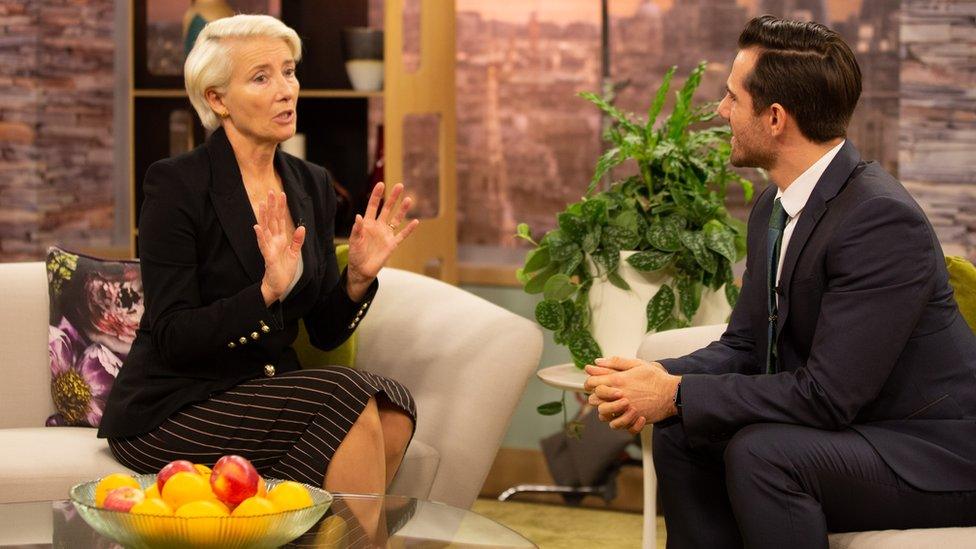
Emma Thompson starred in BBC One's Years And Years
The BBC's recent drama Years And Years struggled in the ratings despite having every possible ingredient for success. It was loved by critics, written by former Doctor Who showrunner Russell T Davies, starred Emma Thompson and was broadcast in a prime BBC One slot.
But finding the perfect formula for a hit show is perhaps trickier than ever thanks to the ways in which television is evolving. It can be difficult to predict what will connect with an audience.
The launch of catch-up services means something like the Bros documentary can become a surprise hit. Originally broadcast over Christmas on BBC Four, word of mouth saw it gradually climb the iPlayer chart and get a Bafta nomination.
'Pushing boundaries'
For dramas, competition from streaming services like Netflix and Amazon has certainly made traditional broadcasters up their game, but it's also had an impact on the way writers plot their stories in the first place.
"One thing it has changed is the way in which television is consumed," says Jed Mercurio, one of the most sought-after writers in television thanks to the success of his shows including Line of Duty and Bodyguard.
"I remember, years ago, where executives would sincerely advise you not to make things too complicated, not to have too much serial story, because the audience wouldn't remember what had happened last week.
"Whereas now, the streaming services have driven the mass consumption of this kind of technology, and in streaming services I'd include BBC iPlayer, which was in the vanguard. But what it does mean is people now do catch up, and if they watch an episode and they're really curious about what went before, they'll watch not only previous episodes but previous seasons, and that has enabled writers to push the boundaries of complexity."
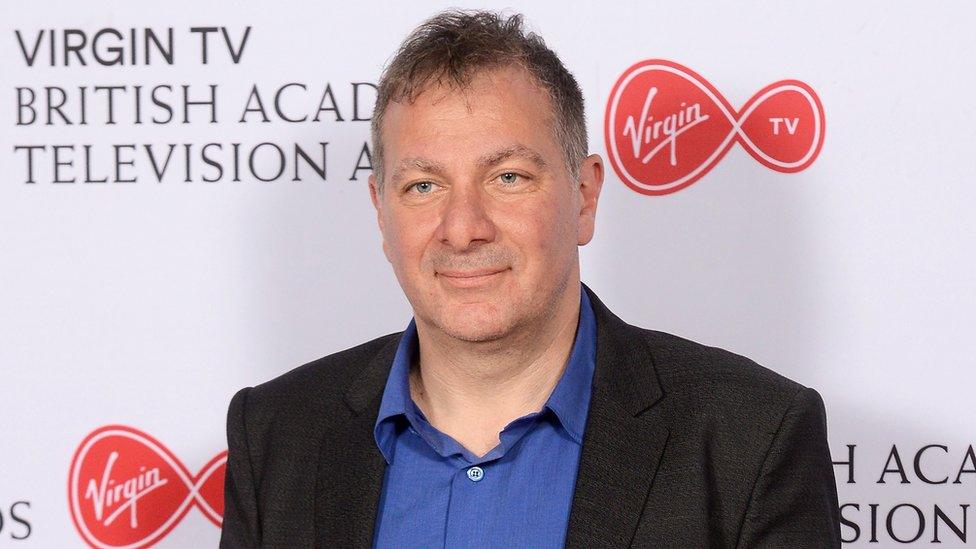
Jed Mercurio made his writing debut in 1994 with medical drama Cardiac Arrest
Most TV packages also now offer viewers the chance to record linear programmes. As a result, viewers can fast-forward the adverts when they catch up, a luxury they don't have when watching things live.
"The imperative with commercial television is to create a hook before the ad break," says Mercurio. "But because so many people fast forward now, I don't know if it's as important as the executives think it is."
Another benefit of skipping ahead, Mercurio jokes, is "you also don't need to worry about your first 30 seconds after the break, because [viewers] just land 30 seconds in".
However, while technology is pushing things forward, streaming services themselves also have an uncertain future.
One reason services like Netflix were successful was that they hosted content which came from other, often traditional, broadcasters.
The company had plenty of popular original shows, such as The Crown and Stranger Things, yet many viewers used the service to watch programmes like Friends or The Office - old episodes of which the company had purchased from the original networks or producers.
But now, several content creators are launching streaming services of their own.
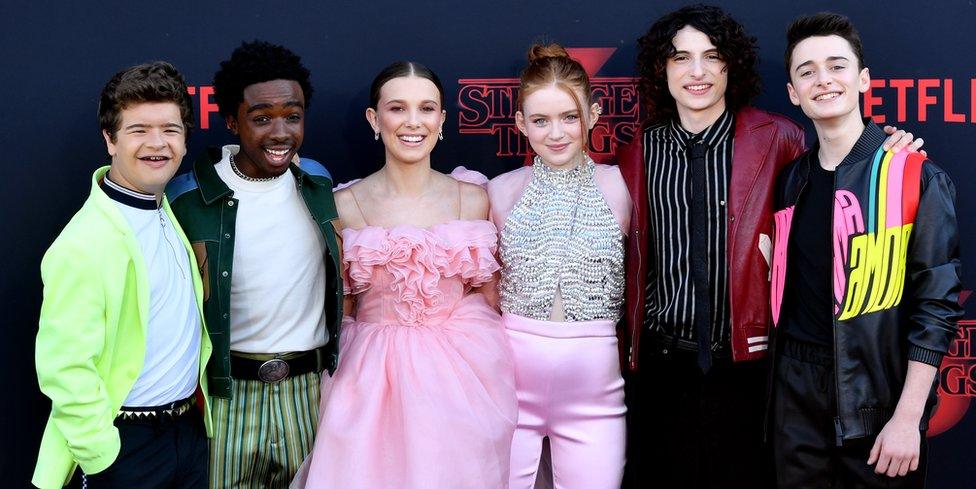
One of Netflix's biggest hits, Stranger Things, has just launched its third series
Netflix, Amazon and the BBC iPlayer are about to be joined by new ventures from Disney, Apple and NBC, among others.
"Watching television is about to get very, very expensive," wrote Stuart Heritage in The Guardian last month., external "There will be a point where viewers are going to hit their tolerance for monthly subscriptions, meaning that TV will become more elitist, tiered and fragmented than it already is.
"The Netflix model was great for viewers, but it couldn't last, the content creators got greedy and scared, and now they're determined to drag things back to the bad old ways. They will force everyone to pay for everything separately, and the subscriber base will split."
Along with Killing Eve, Mercurio's two most recent dramas - Line of Duty and Bodyguard - have been among the BBC's most successful in recent years. All three are notable for their exciting action sequences and gripping plotlines.
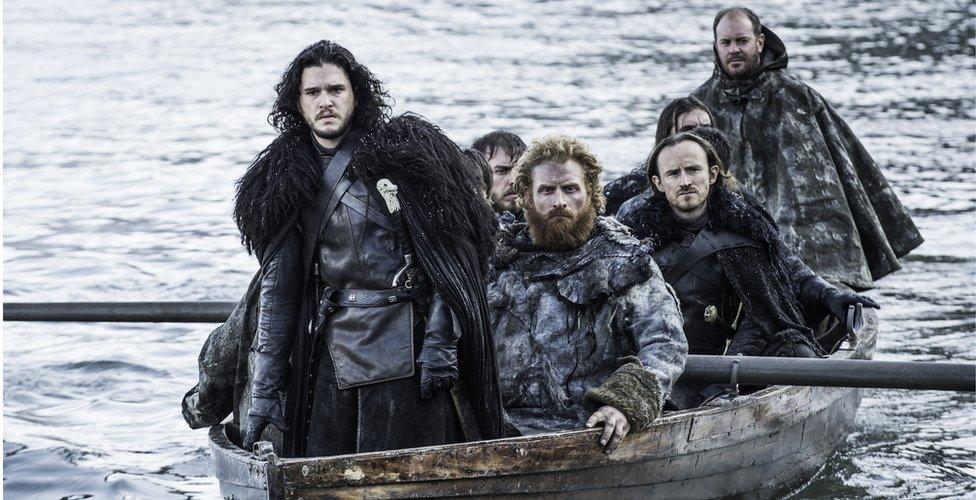
Some fans asked for the final season of Game of Thrones be rewritten
"I watched a lot of TV as a kid... which was my only exposure to story telling, apart from maybe going to the cinema," Mercurio says. "It was probably the American television that I had the best relationship with.
"I remember not being a great watcher of the BBC and thinking it was all a bit middle class, it was like watching a play, which is just people talking at the past. [I thought] 'God, have a car chase!' That's the sort of thing as a 12-year-old boy I wanted to see and the Americans were giving us that."
But while successful writers make gripping drama look easy - some of those at the top of their game still struggle to churn out so much content on tight deadlines.
Heidi Thomas, creator of Call The Midwife, says: "I have writers' block every day of my life, but somebody once said to me, 'first drafts don't need to be perfect, they just need to be written'. Because once you've got your first draft, no matter how ragged and full of holes it is, you can then start to make it better. But if you haven't written it, you can't make it any better."
Mercurio's advice for aspiring young writers is to write as much as you can in your spare time and to be open to criticism. "You've got to be able to not only accept feedback, but seek it," he says.
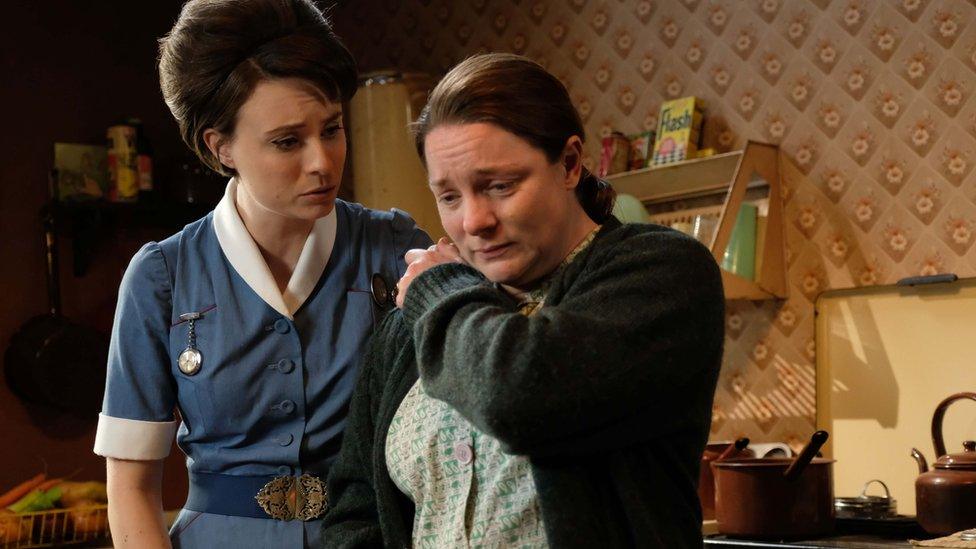
Call The Midwife is one of the BBC's most successful recent dramas
Sometimes, however, no matter how much work and money goes into a production, viewers just aren't satisfied.
Earlier this year, more than 1.6 million viewers signed a petition asking that the poorly-received final season of Game of Thrones be remade with more competent writers.
"I think if we started to buy into that, you'd never finish," says Thomas.
But, jokes Mercurio: "If [viewers] pay for it, if these muppets on Twitter are prepared to crowdfund, I'd love to reshoot everything I've ever done. So if they can crowdfund what the budget is then, yeah, great, game on."
The South Bank Show begins on Sky Arts on 16 July at 22:00 BST.
- Published6 May 2019
